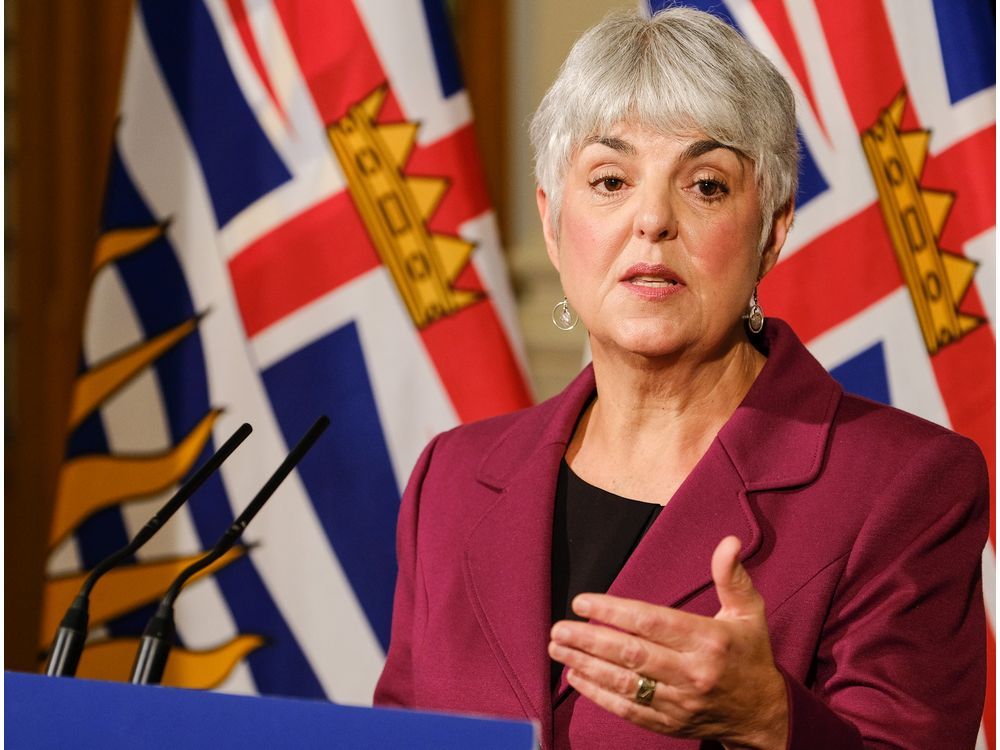B.C. strengthens enforcement, fine collection with changes to B.C. Securities Act

Credit to Author: Gordon Hoekstra| Date: Mon, 21 Oct 2019 21:46:56 +0000
The B.C. government introduced legislative changes Monday to improve the B.C. Securities Commission’s ability to collect penalties and to improve enforcement of white-collar investment offences.
Among key amendments to the B.C. Securities Act is a change that will enhance the securities regulator’s power to freeze and seize property transferred to third parties for below market value, and for the first time to seize registered retirement savings plans. Transferring property to third parties — sometimes to spouses or other relatives — is a technique used by fraudsters to put assets out of the reach of regulator’s trying to collect on penalties.
Amendments will also prevent offenders from renewing driver’s licences and licence plates until penalties are paid.
Improved enforcement measures include increasing maximum fines and jail terms, and introducing minimum sentences for repeat offenders, which will require new regulations expected to be ready before the end of the year.
The changes — which the provincial government says gives its securities regulator the strongest powers in Canada — come nearly two years after B.C. Finance Minister Carole James ordered the securities commission to improve enforcement and fine collections.
James called for the enforcement improvements following a Postmedia News investigation published in November 2017 that found more than half a billion dollars in penalties had gone uncollected by the BCSC in the past decade and that criminal prosecutions by police were a rarity.
An analysis of B.C. Securities Commission and court records showed at least 4,900 fraud victims lost $185 million in schemes from fiscal 2007-08 to 2016-17.
The amendments are the first to the Act in almost a decade.
“It’s certainly about tightening up and giving critical powers to the B.C. Securities Commission to be able to move ahead and look at returning more resources to the victims,” James told Postmedia.
“And it’s also about building trust and sending a message that British Columbia is not a place where you come to defraud people, to bring your money to launder, to be able to cause impacts on our province,” she said.
The B.C. government is also trying to tackle money laundering and speculation in the housing market, for example, strengthening oversight in the gaming sector, including casinos. It has introduced legislation to end hidden ownership in corporations and real estate, and established a working group with the federal government on tax fraud and money laundering
Other Securities Act changes introduced Monday include:
• Removing a 15-year time limit on penalties;
• Expanding the BCSC’s investigative powers, including powers to obtain information;
• Strengthening obligations and sanctions relating to records;
• Adding an ability to order administrative monetary penalties without a hearing for contraventions of regulations or decisions;
• And adding protection for whistleblowers.
The legislative changes also establish a new regime for derivatives, an advanced investment that is a contract based on an underlying financial asset.
Ermanno Pascutto, the executive director of the Canadian Foundation for Advancement of Investor Rights lauded the changes.
“B.C. is setting the bar high when it comes to protecting people’s investments,” Pascutto said in a written statement. “These amendments to improve fine collection rates are some of the most far-reaching in Canada and align with international best practice.”
Brenda Leong, the chair and CEO of the BCSC, said: “We now have new and better tools to go after the bad actors who break the law and cause significant harm to investors and the capital markets.”
James said the B.C. government will also be pressing the federal government for changes to improve enforcement and collection, increased powers to freeze fraudsters’ bank accounts and to allow securities commission penalties to survive bankruptcy.
Last year, another major change was introduced when the B.C. government signed off on a regulatory fee increase to boost the BCSC’s budget by $7.6 million, about 16 per cent, to add officers to its criminal investigation team and regulate new financial technologies such as crypto currency.